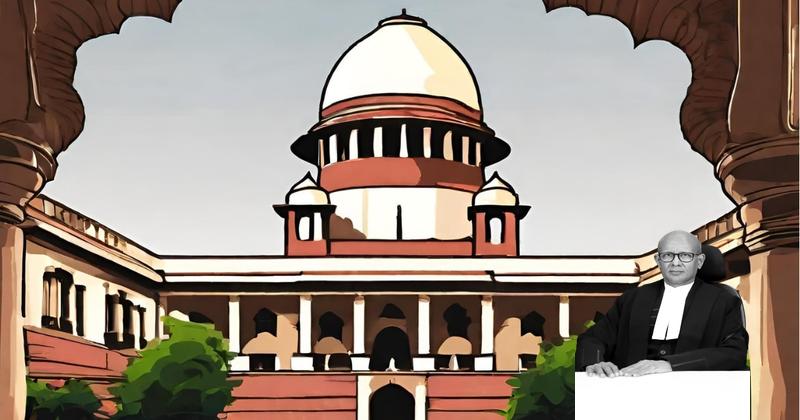The recent court case involved a detailed examination of preferential transactions and the status of lenders as financial creditors under the IBC. The court’s thorough legal analysis focused on interpreting Sections 43, 45, and 66 to determine the validity of the transactions in question. Emphasis was placed on the applicability of mortgage arrangements in establishing financial creditor status. Stay tuned to unravel the complexities of the court’s decision in this insightful legal saga.
Facts
- The impugned transactions are analyzed to determine if they are preferential under section 43(2) of the IBC.
- This analysis involves looking at whether the transactions meet the requirements of sub-section (4) of section 43 IBC.
- The focus is on identifying related party transactions and the applicable look-back period.
- The parties involved and their roles in the transactions are considered in the assessment.
- The factual and background aspects relevant to the transactions are examined for context.
Also Read: Fair Consideration for Promotion Criteria in Judicial Appointments
Issue
- The issue at hand is whether the lenders of JAL could be considered as financial creditors of JIL under the IBC
- The analysis involves determining if the transactions in question can be avoided for being preferential, undervalued, or fraudulent under Sections 43, 45, and 66 of the Code
- It also questions if the respondents (lenders of JAL) can be deemed as financial creditors of JIL based on the mortgage created by the corporate debtor as collateral security for the debt of its holding company JAL
- The key focus is on whether the transfers were made in the ordinary course of business or financial affairs of JIL
Also Read: Analysis of Suspicious Circumstances in Probate Proceedings
Arguments
- Respondent JAL pleaded opposition to the application for CIRP against JIL, believing it could restructure loans and regain management.
- Corporate debtor had 740 acres of unencumbered land which could have been used to secure creditors.
- Respondent and JIL had a relationship with 11 out of 13 lenders being part of JAL’s consortium.
- Impugned transactions were argued to be in the ordinary course of business based on Annual Reports of JIL.
- Transactions were made within legal bounds and not preferential according to the respondents.
- Provisions of Section 43 of the Code were argued to have prospective effect only and not retrospective.
- JAL provided financial and other support to JIL as a holding company.
- Transactions in question were asserted to be valid and not avoidable by respondents.
- NCLT held land mortgage by JIL to defraud lenders due to financial crunch and default status.
- Directors of JIL and JAL aware of default status during land mortgage, impacting creditors negatively.
- Secured creditors like respondent cannot be excluded as financial creditors under the Code.
- Respondent argued that the mortgage was authorized under the Companies Act, 2013.
- Avoidance of preferential dealings were contended in light of JIL’s financial status.
- Transactions were said to be transparent and permitted by law, not for fraudulent purposes.
- Mortgaged properties were classified as ‘inventories’ in ordinary course of business for a real estate company.
- The relationship between parties involved guarantor-guarantee dynamics under Section 5(7) of the Code.
- The appellants, in their arguments as petitioners, contend that the impugned transactions are preferential transactions under Section 43 of the Code and put JAL in a more favorable position at the expense of genuine creditors of JIL, including home buyers.
- They argue that the transactions did not involve direct disbursal against the consideration for the time value of money, which is a key requirement under Section 5(8) of the Code for a transaction to be considered a ‘financial debt’.
- The appellants stress that the mortgage created by JIL in favor of the lenders of JAL does not convert the lenders into financial creditors of JIL, especially when the disbursement of debt to JIL is not involved.
- They further argue that the mortgage obligations were reciprocal and not without consideration, and there was no specific guarantee or indemnity given by JIL in relation to the loans granted to JAL.
- Additionally, the creation of mortgage securities when JIL was facing financial stress and declared an NPA cannot be considered as ordinary course business transactions, as they were not done in the usual course for a subsidiary to provide security for its parent company.
- The appellants make reference to various legal precedents and decisions to support their contentions regarding the nature of mortgages, financial debts, and preferential transactions under the Code.
Also Read: Limitation Laws in Insolvency Proceedings
Analysis
- The use of the word ‘includes’ in a definition clause is typically meant to make the definition extensive and not restrictive.
- When the word ‘means’ is used in a definition, it implies a hard and fast definition with no other meaning than what is explicitly stated.
- An explanation in a statute does not enlarge the scope of the original section, as clarified in various court decisions.
- A deeming provision in a statute can be utilized to clarify an uncertain construction.
- The expression ‘and includes’ extends the definition contained in the words that follow.
- The inclusive part of a definition cannot prevent the main provision from retaining its natural meaning.
- The inclusive nature of a definition can lead to a wider interpretation in certain contexts.
- The distinction between exhaustive and inclusive definitions has been elucidated in various court rulings.
- The interpretation of words, phrases, and provisions of a statute is essential for legal clarity.
- The legislature is not precluded from amending statutory definitions to enhance clarity or meaning.
- Section 44 deals with orders in case of preferential transactions.
- A transfer shall not be deemed to be a mortgage unless the condition is embodied in the document effecting the sale.
- Sub-section (3) of Section 43 excludes certain transfers from sub-section (2).
- Deemed preference occurs when there is a transfer benefiting a creditor or surety for an antecedent debt, putting them in a better position than distribution under section 53.
- Exclusions from preference include transfers in the ordinary course of business or creating security interests securing new value.
- Explanation provided for ‘new value’.
- Conditions explained for transactions to deemed as preference at a relevant time.
- Different types of mortgages defined such as usufructuary mortgage, simple mortgage, conditional sale mortgage, etc.
- Provisions of actions that can be taken by Adjudicating Authority in case of preferential transactions under Section 44.
- Definitions of contracts like indemnity and guarantee under Indian Contract Act, 1872.
Decision
- Appeals allowed in part
- Impugned order dated 01.08.2019 by NCLAT reversed and set aside
- Appeals against order dated 16.05.2018 dismissed
- Order dated 16.05.2018 by NCLT upheld regarding transactions as preferential under Section 43
- NCLT directions for avoidance of transactions upheld
- Appeals against orders by NCLT on applications by lender banks dismissed
- NCLT orders restored with findings that lenders are not financial creditors of Jaypee Infratech Limited
Case Title: ANUJ JAIN INTERIM RESOLUTION PROFESSIONAL FOR JAYPEE INFRATECH LIMITED Vs. AXIS BANK LIMITED (2020 INSC 227)
Case Number: C.A. No.-008512-008527 / 2019



